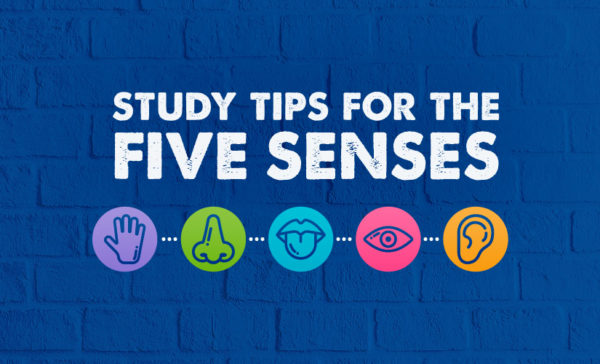The way we perceive and sense the world around us affects our state of mind. When we study, how do we create the optimal sensory environment for learning? Here are some quick tips based on scientific studies that have explored the effects of our senses on learning.
Touch
Did you know that squeezing a stress ball can help with cognitive tasks, relieve stress, and relax muscles? This study showed that stress balls helped sixth-grade students focus.
Smell
Did you know that at least two studies, such as this one, have shown that peppermint scents seem to improve focus and memory? Other scents that research has associated with studying success are lavender, cypress, lemon, and jasmine.
Taste
Tea enthusiasts may be interested in this study. According to the study findings, if you need to stay alert to cram for a test, peppermint tea is the way to go. But if you’re done cramming and now need to relax and get a good rest before your test, chamomile may be the tea for you. Bonus: sipping herbal tea is a great way to stay hydrated during intense study sessions!
Sight
In this study, researchers at Princeton University found that less cluttered, more organized environments led their subjects to higher productivity and less distractedness. So you may want to give your room and desk a quick tidy-up before you begin your next study session.
Sound
Should you listen to music while studying? According to this study, it depends. The study indicates that some people will thrive with background music, while, for others, it’s distracting. If you’re distracted by your favourite tunes, but you find the silence too, well, silent, some people find background noise or classical music to be less distracting. Many studies have even pointed to the possibility of classical music having positive effects on learning.
Need help to find a tutor? Browse our 24 locations in Ontario and one in Peace River, Alberta, to find a tutor near you.
